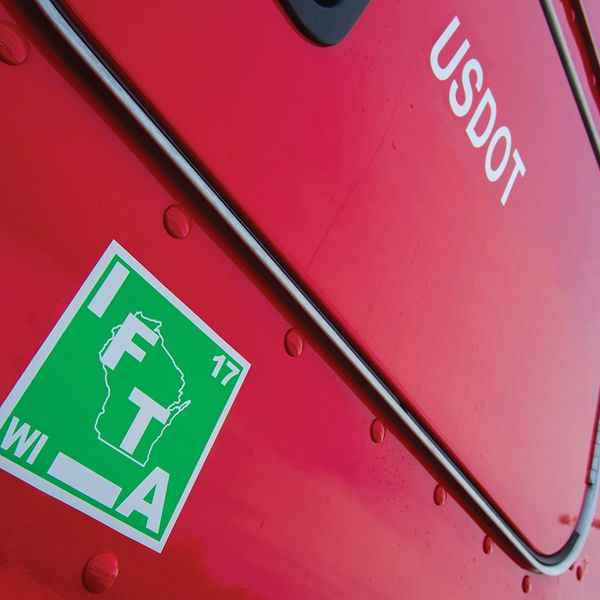Rules change for electronic records under IRP
Changes to the electronic recordkeeping requirements of the International Registration Plan (IRP) will affect records produced by vehicle tracking systems, including electronic logging devices (ELDs) and global positioning systems (GPS). To standardize the content and format of records suitable for distance reporting under both IRP and IFTA (International Fuel Tax Agreement), the changes:
- Require minimum record creation rate of 15 minutes while the engine is on (sets a minimum number of pings);
- Remove the requirement for location information commonly associated with geocodes;
- Reorder the requirements to match the logical sequence of data elements presented in an electronic format during an audit;
- Remove the route traveled requirement; and
- Require the use of specific electronic file formats for record submission during an audit.
Why the change?
The IRP Board recognized that there has been a proliferation of ELD systems without standardization of content and format suitable for IRP and IFTA distance reporting. In some cases, the vendors of ELD systems have created reporting systems that record and archive data elements that satisfy reporting requirements, but this is not always the case. As a result, IRP registrants may enter into an audit without necessary records and receive “inadequate records” assessments.
Discussions at IFTA and IRP annual meetings and audit workshops centered on the issue of inadequate records presented during an audit, resulting in the push to create a standard for appropriate data elements. The IRP and IFTA boards acted by creating a joint Standardization of Electronic Audit Records Working Group, which included jurisdictional members from IRP and IFTA as well as industry stakeholders. The activities of the working group resulted in a proposal to amend the Plan.
The proposal was approved and became final in July. The effective date for the changes is January 1, 2024.
Compliance under the new requirements
Records must contain specific elements to be accepted as adequate by the base jurisdiction in an audit.
For records produced by a vehicle-tracking system that utilizes latitudes and longitudes, the record must be created and maintained at a minimum of every 15 minutes when the vehicle’s engine is on. The data must contain the following elements:
- Vehicle identification number or vehicle unit number,
- The date and time of each system reading,
- The latitude and longitude to include a minimum of 4 decimal places (0.0001) of each system reading, and
- The odometer reading from the engine control module (ECM) of each system reading. If no ECM odometer is available, a beginning and ending dashboard odometer or hubometer for the trip will be acceptable.
The data must be accessible in an electronic spreadsheet format such as XLS, XLSX, CSV, or Delimited text file. Formats from a vehicle tracking system that provide a static image, such as PDF, JPEG, PNG, or Word, are not considered accessible for the purposes of verifying distances.
On January 1, 2024, any carrier operating with an IRP plate will need to adhere to the new Plan rules that are in place on that day. Records for travel activity before, on, or after that date must meet the standards that are in place during the time of that travel activity.
Key to remember
Carriers using ELDs and other electronic tracking systems should review their recordkeeping practices in preparation for the changes and communicate with their service providers to ensure the new standards will be implemented by 2024.























































